FourFourTwo's 50 Best Managers in the World 2018
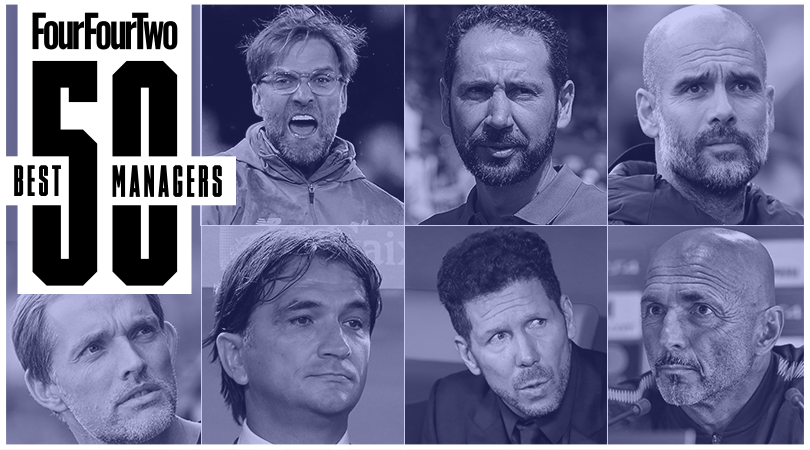
Best bosses
It’s not easy being a manager. Zinedine Zidane made it look that way with three consecutive Champions League triumphs for Real Madrid, but usually it’s a never-ending battle with player egos, tactical plans and media management.
Ranking bosses is no simple task either, with so many subtleties to consider and no obvious way of defining success. Of course, to win a European title is as good as it gets, but you wouldn’t be expected to do that with Burnley, so overachieving with such a team must be taken into consideration.
Our list does refer frequently to feats from 2018, but overall class is acknowledged as well. Some of the following names are recognisable old heads, others promising hopefuls. Here we go...
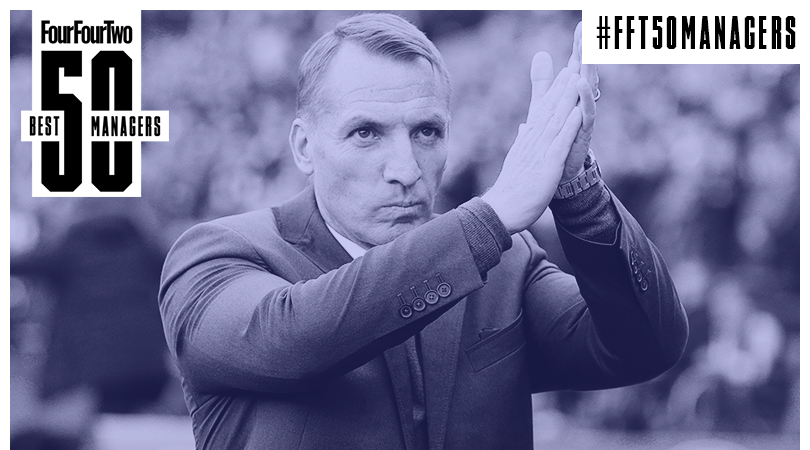
50. Brendan Rodgers (Celtic)
Usually Mr Positive, Rodgers tried to re-energise his players by saying supporters should be “alarmed” by Celtic’s poor start to the season after two years of making life in Scotland a stroll in the park.
The Bhoys have won the domestic Treble two years in a row under Rodgers’ watch, but on the European stage – the real testing ground – they dropped out in the qualifiers.
Progression to the knockout stages of the Europa League would help restore Rodgers’ aura in Glasgow, as would securing the ‘treble Treble’.
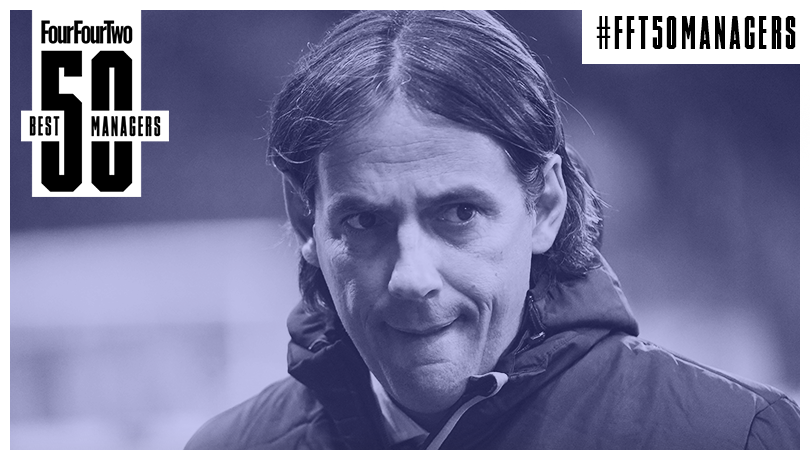
49. Simone Inzaghi (Lazio)
After a playing career that was often overshadowed by his elder sibling Pippo, it's the younger Inzaghi who is proving to be the heavyweight in the coaching sphere.
Lazio were unlucky to miss out on the Champions League on the final day of last season, and Inzaghi’s side have become a fearsome force in Serie A, playing an entertaining brand of football that is earning some superb results.
Tactically astute and responsible for getting the best out of an attack fired by the prolific Ciro Immobile, it’s surely only a matter of time before one of Italy’s mega clubs come knocking.
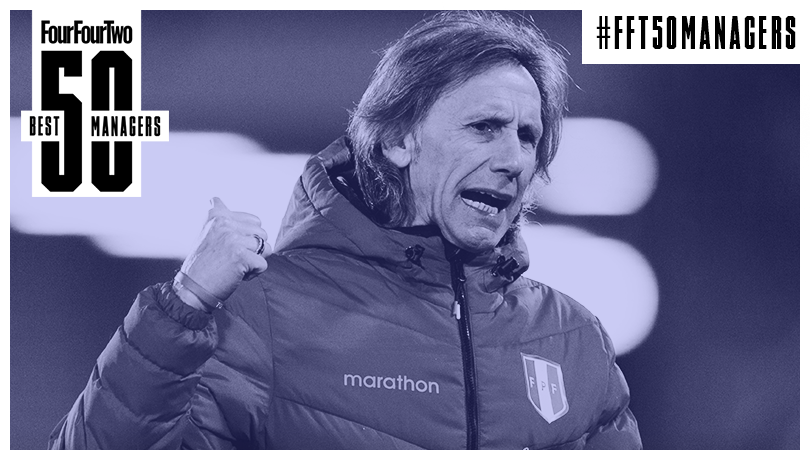
48. Ricardo Gareca (Peru)
Ex-Argentina forward Gareca – formerly on the hit list of Pablo Escobar – established an excellent reputation in South America, particularly with Velez Sarsfield, but it’s the job he’s done with Peru that makes him stand out.
Gareca led his modest side to the World Cup for the first time since 1982 this summer, encouraging an attack-minded and courageous style.
It didn’t help them out of the groups, but it did win the Peruvians a lot of admirers. Further progress is to be expected under Gareca’s guidance.
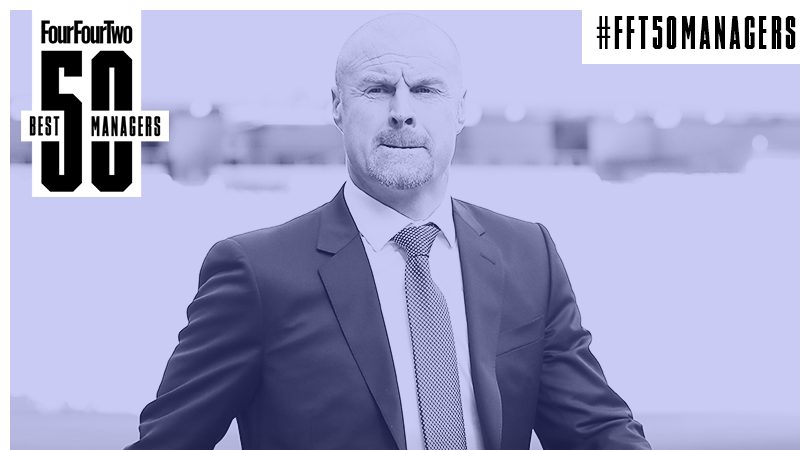
47. Sean Dyche (Burnley)
Although Burnley’s Europa League adventure ended before it had begun in the qualifying phases, Dyche’s feat of guiding them there in the first place was simply remarkable.
The Clarets deserved more plaudits for overcoming an impressive Istanbul Basaksehir side (before losing to Olympiakos), but their real success came last season.
A seventh-placed finish defied the number-crunchers as they were crowned ‘best of the rest’ in the Premier League despite having a negative goal difference and one of the smallest wage bills in the division.
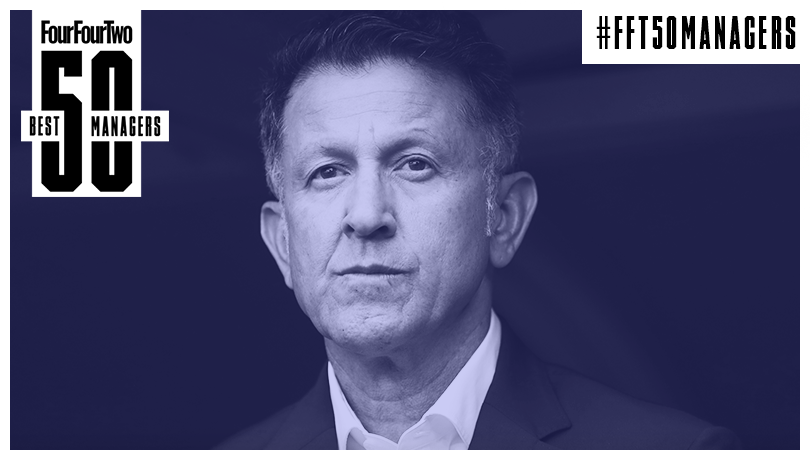
46. Juan Carlos Osorio (Paraguay)
Osorio landed took the Mexico job in 2015 after wandering between North and South America, replacing the hot-headed Miguel Herrera.
An exciting spell followed for El Tri, including a 22-game run without defeat, regular touchline meltdowns and unorthodox training methods that earned Osorio the nickname ‘The Recreationist’.
His side then bowed out of the Russia World Cup in style this summer, defeating defending champions Germany in impressive style on the way. Next on Osorio’s to-do list – take Paraguay to Qatar in four years’ time.
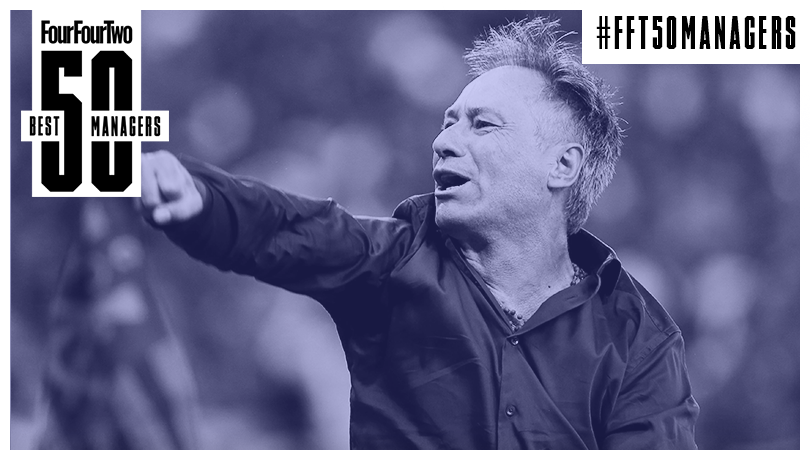
45. Ariel Holan (Independiente)
Formerly a bronze medal-winning field hockey coach with Uruguay women at the 2003 Pan American Games, Holan also achieved fame after selling his car to buy a computer he could use to effectively analyse player data.
In the time since, he’s helped Independiente to bring back some of their former aura, implementing an attractive brand of football that helped the club to Copa Sudamericana and Suruga Cup victories over the last year.
An innovator, Holan came close to leaving the club after an argument with the local ultras but was convinced to stay – and fans will be relieved he did.
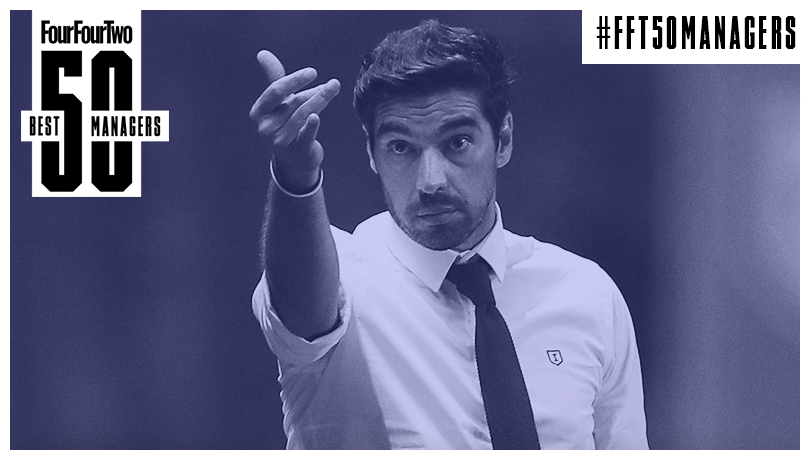
44. Abel Ferreira (Braga)
Ferreira has quickly made a name for himself as one of the best young coaches on the continent since making the step up from Braga’s reserves to the first team in April last year.
He ended the 2017/18 strongly and drew widespread praise for his tactical flexibility, high-tempo football and well-judged substitutions.
The ex-Sporting full-back started the new campaign where he left off, taking his side joint-top of the table with Porto and above the likes of Benfica and Sporting after nine rounds.
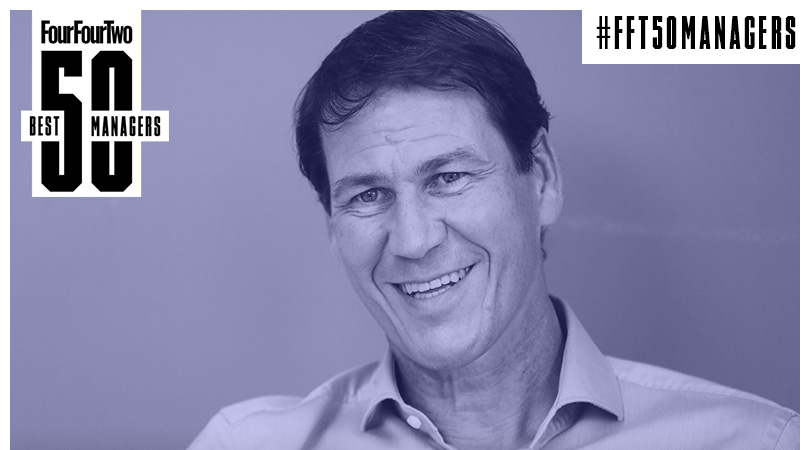
43. Rudi Garcia (Marseille)
Garcia came within a whisker of history when he led Marseille to the Europa League final last season, where he hoped to become just the third coach ever to take a French team to a European title.
Atletico Madrid ended that dream, but the manager boosted his reputation as a savvy operator and master motivator by taking his side so far.
The former Roma boss arrived with l’OM languishing in 13th place and has restored the southern club's health significantly over nearly two years in charge.
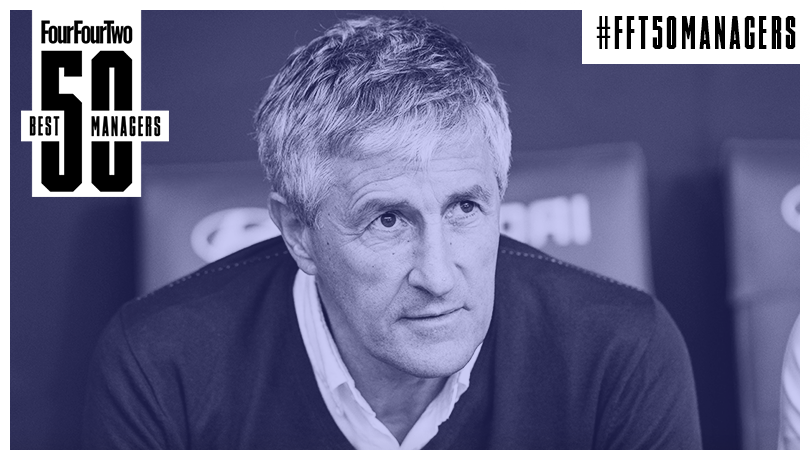
42. Quique Setien (Real Betis)
Setien was just what Real Betis needed after years of watching city rivals Sevilla enjoy success at home and abroad – a boss with a plan, vision and attitude.
He had made Las Palmas one of the most watchable sides in the Spanish top flight with his attacking philosophy, until leaving at the end of the 2016/17 season following a blow-out with the club hierarchy.
The Betis board backed their man after a slow start and were rewarded when he took them back to Europe in his first season.
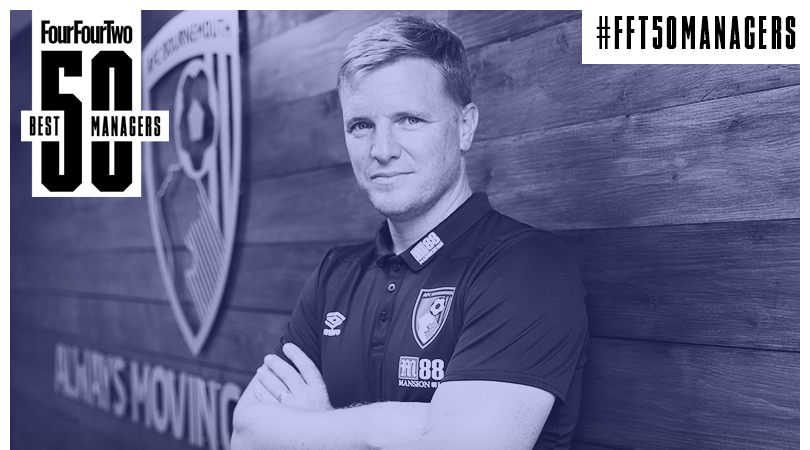
41. Eddie Howe (Bournemouth)
Howe is still learning and improving as a manager, but has steered Bournemouth to sixth in the Premier League after 11 matches.
His tactical vision is still developing, but Howe’s real success can be seen in the individuals that make up his team: Callum Wilson has been resurgent since returning from serious injury, Ryan Fraser has developed into an influential top-flight player and the likes of Steve Cook and Charlie Daniels continue to deliver.
Towards the end of last year Howe managed to stop a worrying slide and Bournemouth – and their manager – have grown smarter as a result.
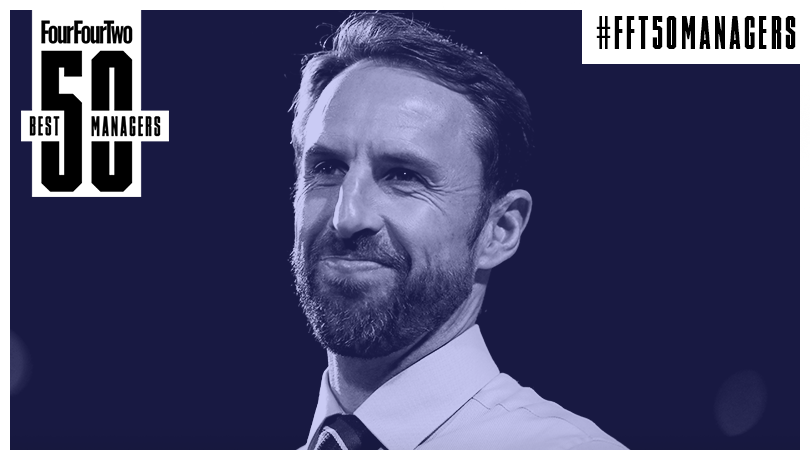
40. Gareth Southgate (England)
Southgate has been one of the key figures behind making fans feel connected to the England team once more. Leading his players to a World Cup semi-final was also a great result when expectations were so low before the tournament, and the FA did well to swiftly hand him a new contract.
The former Middlesbrough boss this year showed he can manage a squad and create a positive atmosphere, but there were certainly lessons to bring back from Russia.
Over the long term, Southgate will be judged on whether he can apply that knowledge and develop complete control of matches.
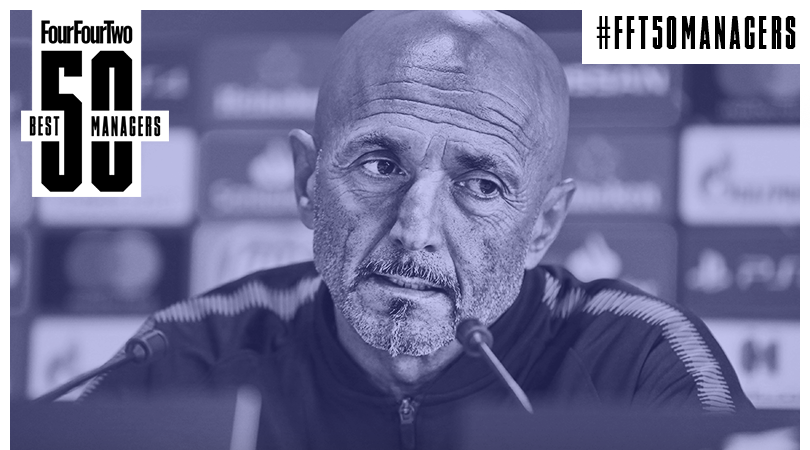
39. Luciano Spalletti (Inter)
Spalletti became known for his attack-minded approach while at Roma and promptly took Inter back to the Champions League for the first time in six years during his debut campaign last season.
Like the team he built in the capital, Spalletti’s side continues to suffer shock defeats at unexpected intervals – such as newly-promoted Parma’s win at San Siro in September.
However, his Milanese squad is packed with talent and he is slowly but surely dragging the Nerazzurri back to the top positions in Serie A.
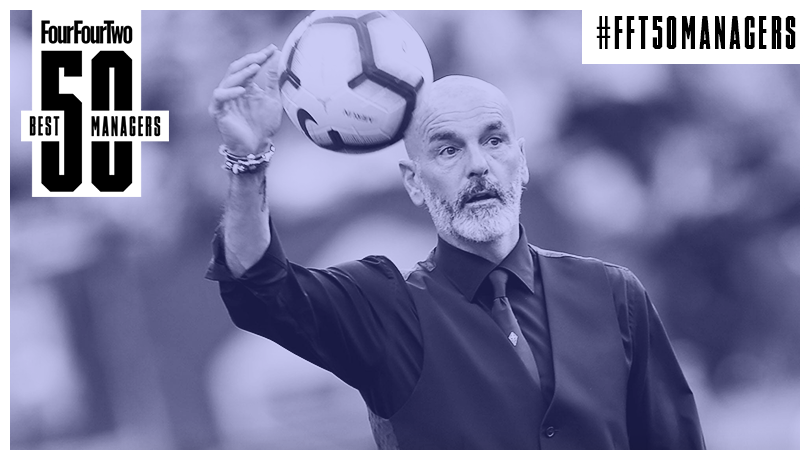
38. Stefano Pioli (Fiorentina)
Pioli’s Fiorentina team is the youngest in Europe on average age and plays with the swagger of youth, but he has also shown personal attributes that La Viola have previously lacked.
The most notable example was after the shock death of captain Davide Astori last March, when Pioli told each member of his squad the tragic news personally.
A return to Europe is the target for Pioli’s team now, united in their objective and with a renewed positive outlook.
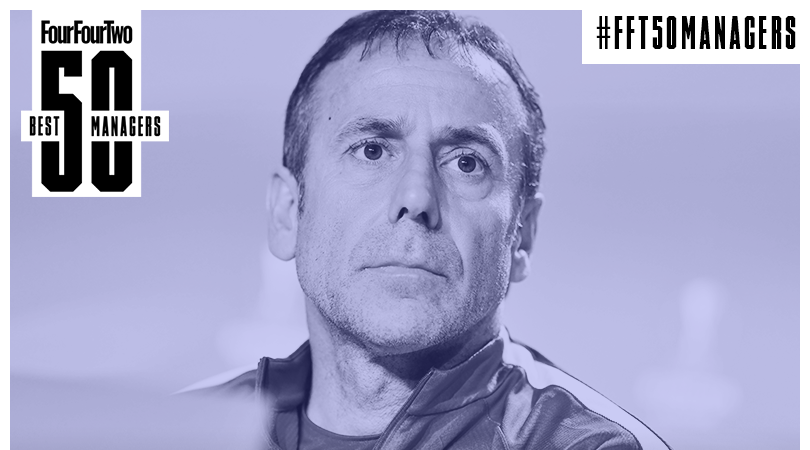
37. Abdullah Avci (Istanbul Basaksehir)
Fatih Terim is thought of as the greatest Turkish manager, but Avci is considered the country’s best tactical mind even compared to him.
Building an excellent team away from the media glare at Istanbul Basaksehir, a club almost without supporters, his side have proved a threat to dominant trio Fenerbahce, Galatasaray and Bestiktas.
They finished second in 2017, third last year and are likely to fight for the league title this term too, with their superb coach mostly to thank.
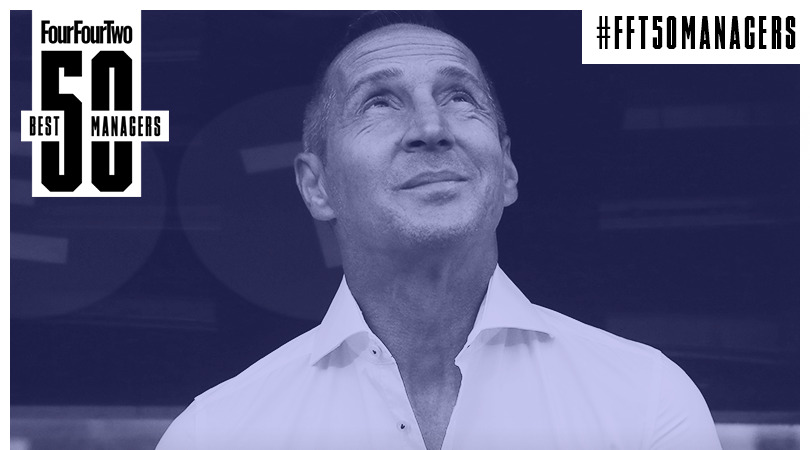
36. Adi Hutter (Eintracht Frankfurt)
Young Boys were thought of as the eternal losers of the Swiss game, regularly collapsing at important moments and without a trophy since 1987.
That was until Hutter appeared and instilled the confidence required to end the Bern outfit’s long wait for a Super League triumph ahead of Basel this summer.
The Austrian boss has shades of Jurgen Klopp in his style, so it was only right for him to head to the Bundesliga this season to replace Bayern Munich-bound Niko Kovac at German Cup holders Eintracht Frankfurt.
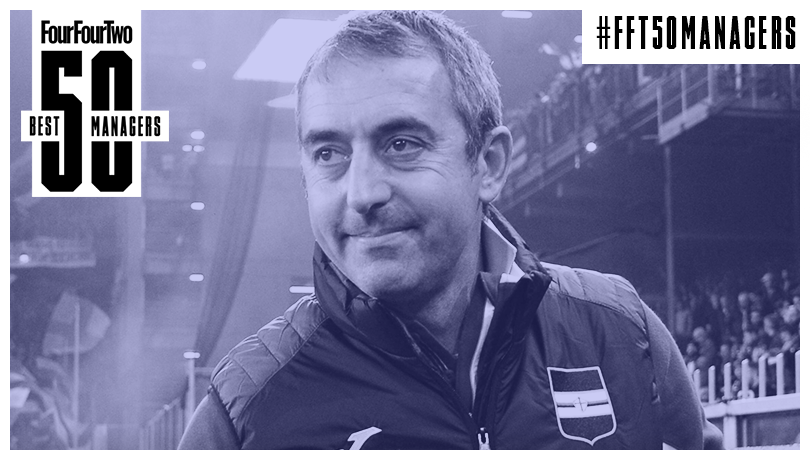
35. Marco Giampaolo (Sampdoria)
Giampaolo was handed the tricky task of replacing the great Maurizio Sarri at Empoli in 2016, but went on to make the Tuscan club even better before Sampdoria swooped.
The mixture of promising youngsters like Dennis Praet and experienced veterans like Fabio Quagliarella has helped the Genoa club become an intimidating outfit capable of providing a threat to Italy’s biggest clubs.
The 51-year-old has continue to gain impressive results – see the 3-0 win over Napoli earlier this season – despite losing the likes of Lucas Torreira and Milan Skriniar.
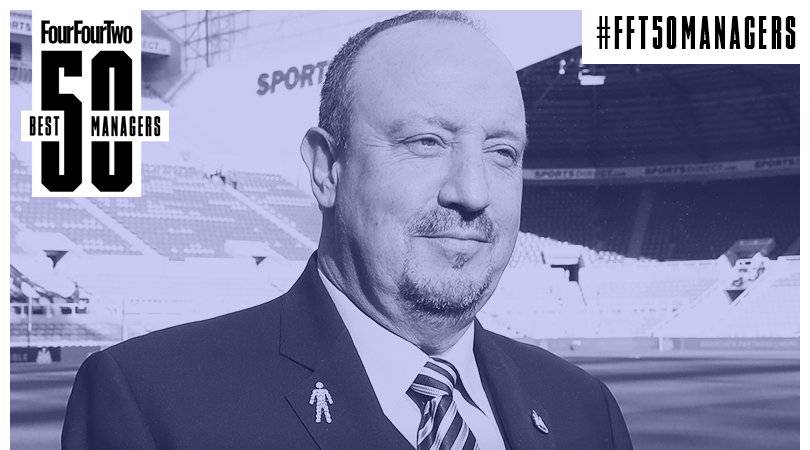
34. Rafael Benitez (Newcastle)
Rafa loves a scrap. Whether it’s with his own fans (Valencia and Chelsea), the hierarchy (Liverpool), or the players (Real Madrid), he’s not one to back down.
The squad he led to 10th place last season had no right to be in the top half of the Premier League, the football equivalent of winning the derby on a gerbil. It’s up to Mike Ashley to back the Spaniard now, or risk losing both him and his team’s place in the top-flight.
It’s been suggested that a truce is in place after a club dinner attended by the manager, players and owner, with Ashley vowing to open the chequebook in January.
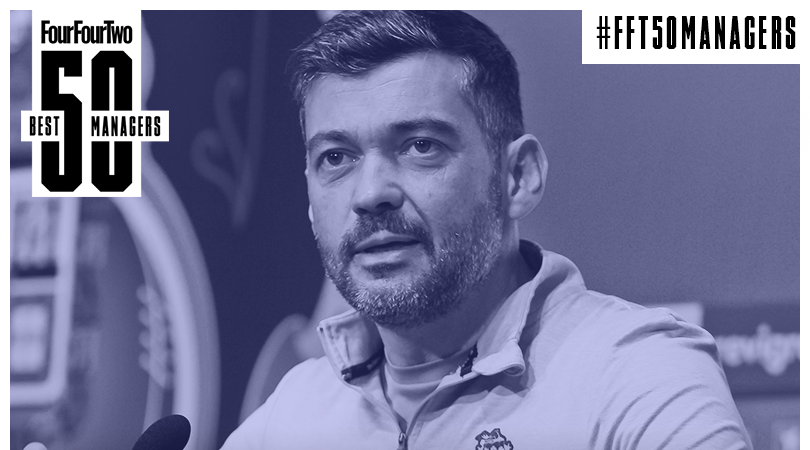
33. Sergio Conceição (Porto)
It’s not really a surprise that Marco Silva turned down an offer from Porto in 2017 – his task would’ve been to earn €100 million from player sales to satisfy FFP as well as claiming the league title ahead of rivals Benfica.
Conceição took on the challenge with a positive spirit that is mirrored in his tough, full-hearted and attack-minded team, and he has turned around the fortunes of a club that had gone without a trophy for four years.
Under his guidance, Porto also never shy away from a battle in Europe, regardless of who they’re up against.
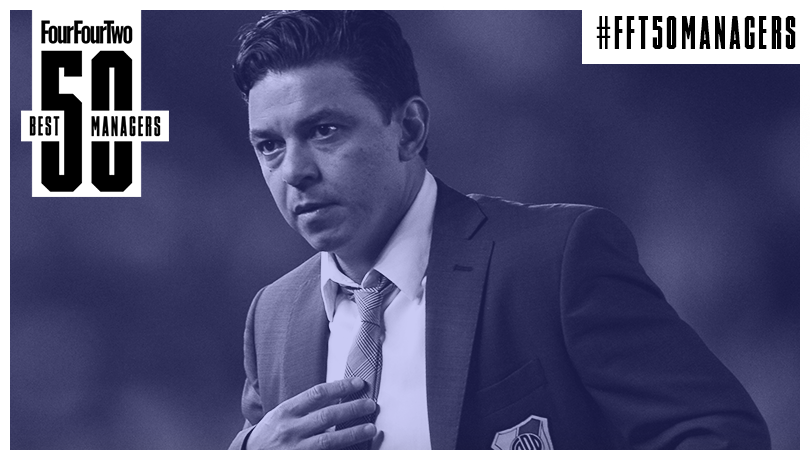
32. Marcelo Gallardo (River Plate)
Gallardo is called ‘Napoleon’ in Argentina for good reason. In six continental competitions under his guidance, River Plate have reached the semi-finals five times as well as lifting the Copa Libertadores, Copa Sudamericana and two Recopas among others.
Another member of the Marcelo Bielsa school, ‘The Doll’ became the first top-flight coach in Argentina to take on a female assistant in his backroom staff and has now signed a new deal until 2021.
If he remains in Buenos Aires for the full length of that contract, he’ll become the longest-serving boss in the club’s storied history.
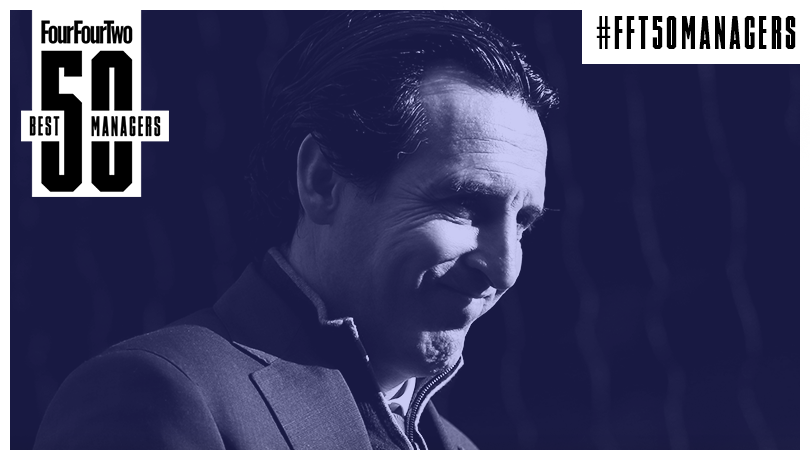
31. Unai Emery (Arsenal)
Emery’s time at PSG won’t go down as a success. He fluffed a one-horse title race in his debut campaign and spectacularly blew a 4-0 first-leg Champions League win over Barcelona.
In the end, the Spaniard never made it past the last 16 with the French giants and couldn’t cope with the internal squabbling of a notoriously demanding job, although he did leave with a league title to his name from his final season.
Taking on the Arsenal job post-Arsene Wenger was never going to be easy, but Emery has started well at the Emirates and brought back a feel-good factor that has been missing for too long.
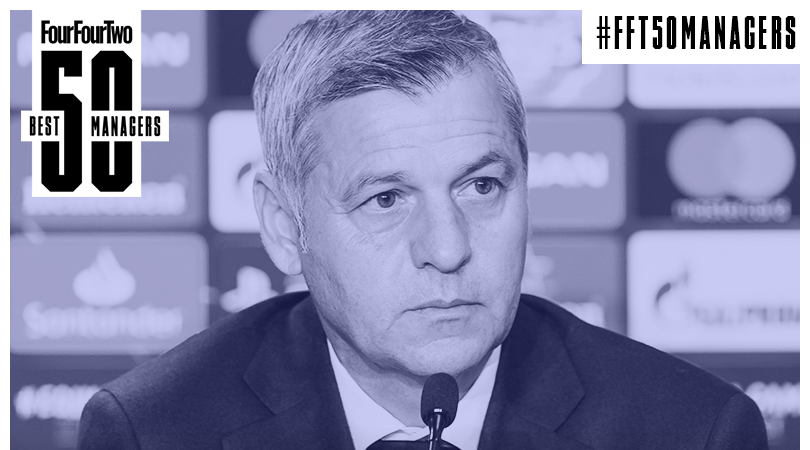
30. Bruno Genesio (Lyon)
Genesio continues to do good work in Lyon, although the supporters have never quite taken to the low-key boss.
Les Gones are targeting a fourth consecutive top-four finish under the manager this season after coming third in Ligue 1 last season.
The 52-year-old has overseen excellent form from the likes of Memphis Depay, Nabil Fekir and Bertrand Traore during the last year, players who have helped to make Lyon one of the most entertaining teams to watch in Europe.
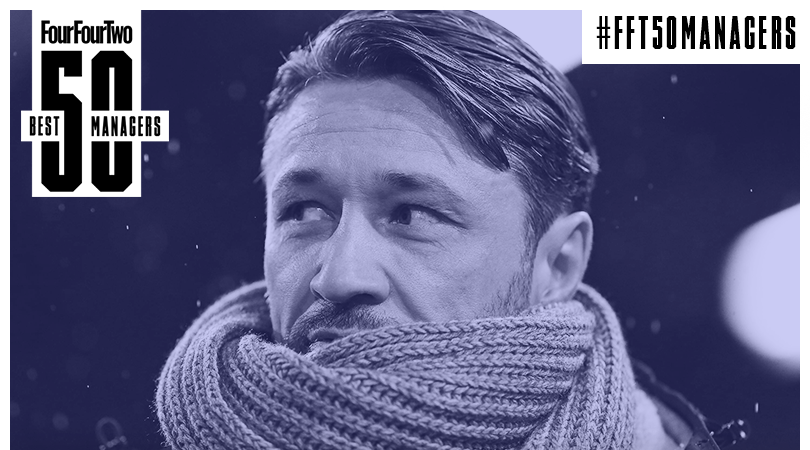
29. Niko Kovac (Bayern Munich)
The former Croatia international’s lack of elite managerial experience made him a surprise appointment by Bayern and a four-match winless run in October didn’t get him off to the best start.
But fans of the Bavarian giants need only look back to May, when Kovac’s Eintracht Frankfurt team beat them 3-1 in the DFB-Pokal final, to appreciate the tactical savvy and off-pitch discipline he will offer in Munich.
Kovac started well with a 5-0 hammering of his former club in the Supercup and four consecutive Bundesliga victories – so now Bayern need to return to that form.
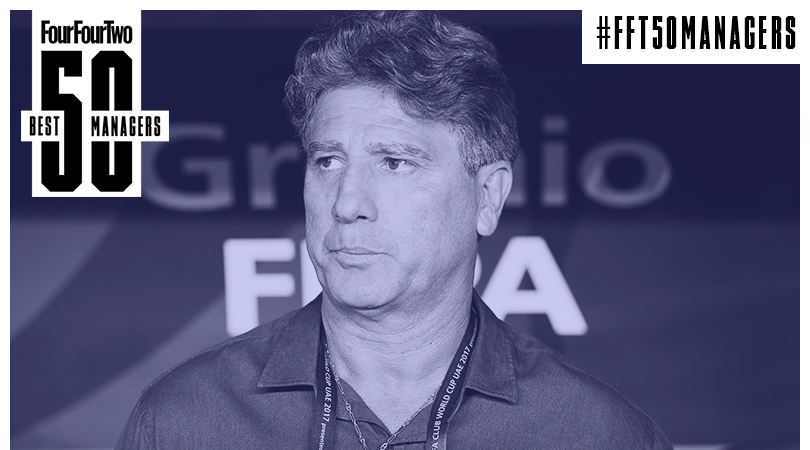
28. Renato Gaucho (Gremio)
While his contemporaries headed abroad to study the methods of Guardiola, Ancelotti or Mourinho, Gaucho elected to practice his favourite sport, foot-volley, on the beaches of Rio de Janeiro instead.
After more than two years in the wilderness, Gremio appointed him towards the end of 2016 in what was regarded as a high-risk move.
Those doubts couldn’t have been more wrong: Renato has since gone on to become the first Brazilian to win the Copa Libertadores as a player and coach, and is the favourite to succeed Tite one day.
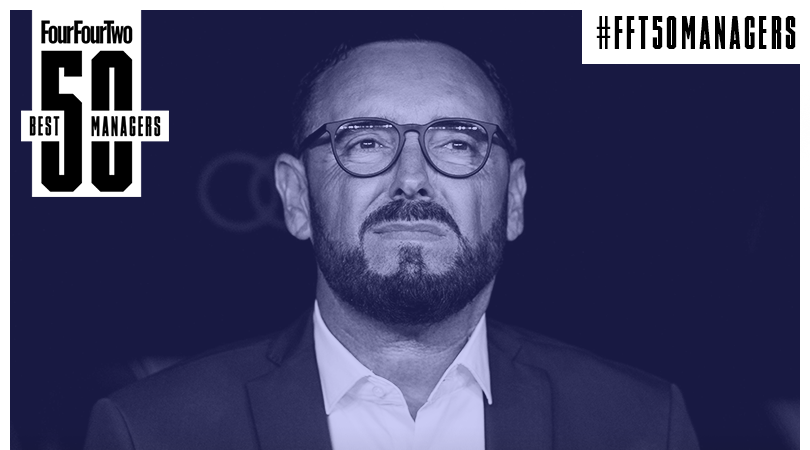
27. Jose Bordalas (Getafe)
Bordalas has turned Getafe’s fortunes upside down since his appointment at the Spanish club in September 2016, when they sat one spot off the bottom of the Segunda Division.
He won promotion back to the top-flight before guiding his side to within a whisker of European qualification via an eighth-placed finish upon their return to La Liga.
Hard work, concentration and defensive solidity are the bedrock of Bordalas’s philosophy. His players have listened, becoming one of the hardest nuts to crack in Spain, and Getafe could have a job on their hands keeping the talented boss on their books for much longer.
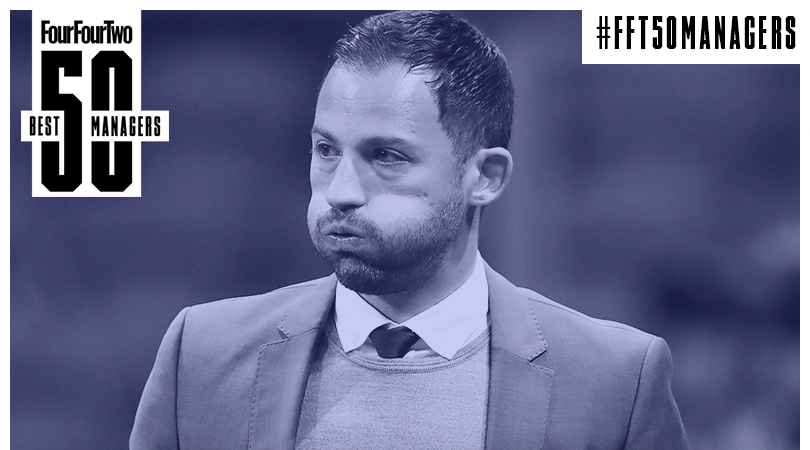
26. Domenico Tedesco (Schalke)
Tedesco must give some first impression. When he arrived at Schalke, he came through the door as a 31-year-old business engineering graduate with 11 matches of coaching experience to his name.
It was a left-field move, but it paid off as he led the club from the bottom half to second place. Leon Goretzka and Max Meyer’s summer departures have made the job tougher, but Schalke have at least got off to a good start in the Champions League this term.
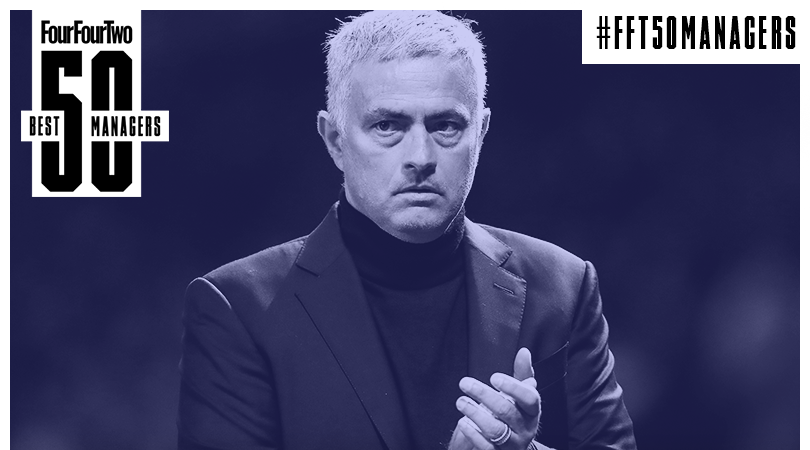
25. Jose Mourinho (Manchester United)
Where to begin? Finishing as runners-up in the league and FA Cup was a decent return, but circumstances on and off the pitch have created the usual animosity.
The ongoing saga with Paul Pogba continues to hit the headlines, while the January market will inevitably bring further conflict with Ed Woodward and public demands for more backing.
The Portuguese still possesses a fine football mind, but his team continues to underwhelm, and his reign has again been fractious. United are the least complete team among the Premier League heavyweights and Mou isn’t the manager he once was.
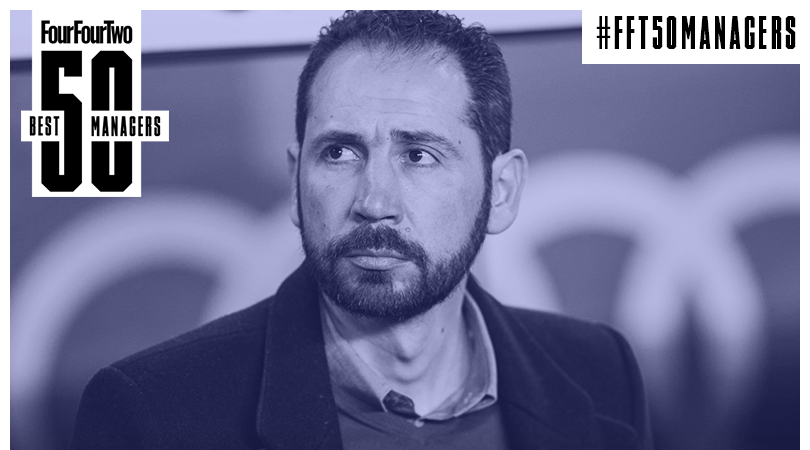
24. Pablo Machin (Sevilla)
Machin didn’t slow down after securing Girona’s first ever La Liga promotion, leading the club to a stunning top-half finish in their debut season and recording shock wins over Real Madrid, Villarreal and Athletic Bilbao along the way.
Girona were bottom of the Spanish second tier when Machin took the reins in March 2014. He was always going to attract a bigger club and Sevilla pounced in May as they looked for some much-needed organisation.
He’s started well in his new role, with Sevilla sitting pretty in third place after 11 games having hammered Real Madrid 3-0 in September.
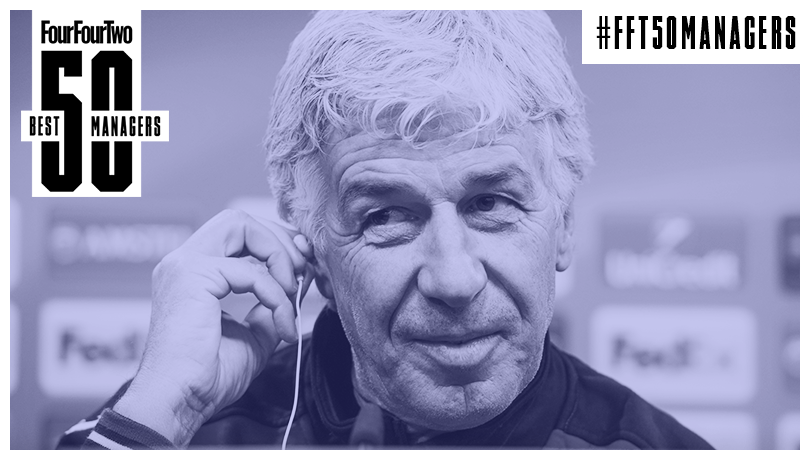
23. Gian Piero Gasperini (Atalanta)
Gasperini is different to many of the managers who have been named on this list because of their tactical developments or hauls of silverware.
The affable 60-year-old did end Atalanta’s 26-year wait for European football, but he’s otherwise had little tangible success in his career. He possesses an incredible ability to develop players, however, and has made Bergamo the perfect place to hone their skills.
‘Gasp’ has helped the conveyer belt at Atalanta continue to produce players who are later moved on to some of Italy’s bigger clubs, with Milan’s Mattia Caldara and Roma midfielder Bryan Cristante being two recent examples.
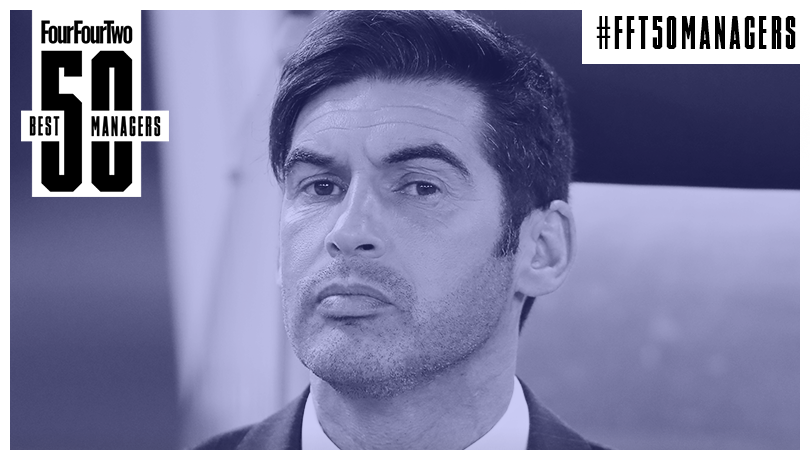
22. Paulo Fonseca (Shakhtar Donetsk)
The great Mircea Lucescu would have had every right to think his legacy as Shakhtar’s greatest manager would be untouchable, but Fonseca has achieved the unthinkable by excelling as the successor to a club legend.
He suffered a shock defeat to Young Boys in Champions League qualifying upon his arrival in 2016, but has since clinched back-to-back league and cup doubles, as well as a last-16 spot in Europe’s premier club competition.
That feat that is even more impressive when you consider the club’s reduced budget and continued exile from their Donetsk home.
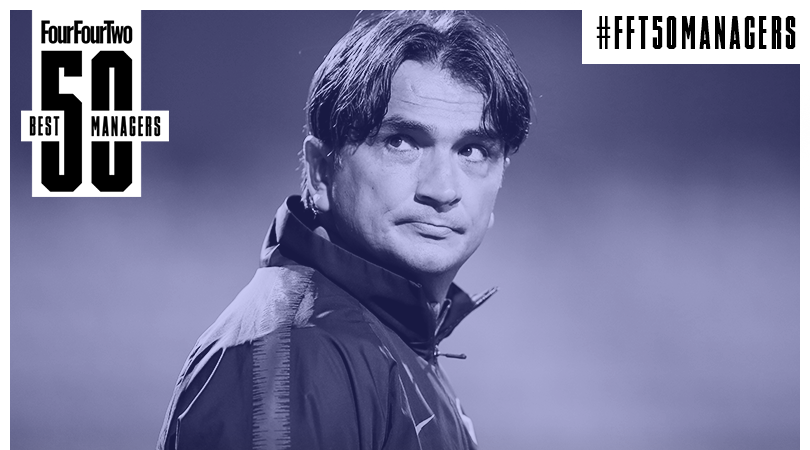
21. Zlatko Dalic (Croatia)
Croatia’s appointment of Dalic in October 2017, two days before a key World Cup qualifier against Ukraine, came as a surprise and few people outside of the country knew much about him.
Defeat could’ve spelled disaster for his future in the role, but Dalic’s side were victorious, battled through the play-offs and then surprised everyone by making it all the way to the World Cup final.
They may have needed penalties to get past Denmark and Russia, but the boss deserves enormous credit for unifying a squad going through a delicate political situation. His easy manner with the media did him no harm either.
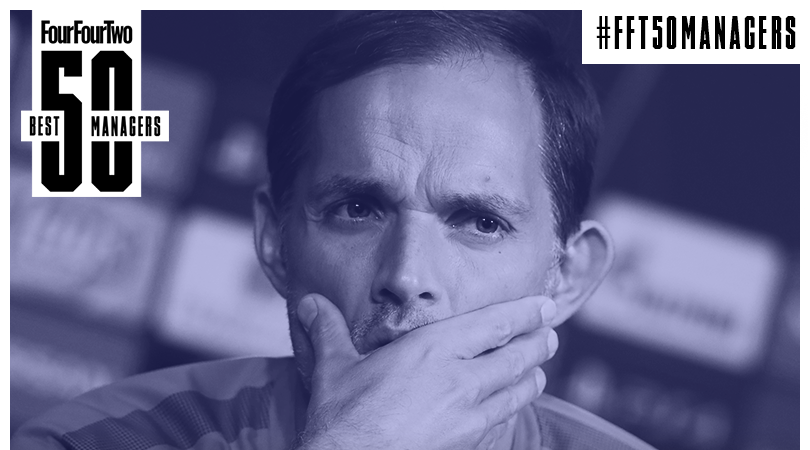
20. Thomas Tuchel (PSG)
The Paris club is a happier place under Tuchel’s watch than it was towards the end of Unai Emery’s spell in charge. The German has brought back the fun factor in training, and his players have responded with a stunning 12 straight wins to start the Ligue 1 campaign.
Questions remain about their ability to banish Champions League demons, but with Tuchel in charge there's a sense that they may now have a better chance than ever.
He hasn’t been afraid to make big calls – like dropping Kylian Mbappe for turning up late to a meeting – and could instil the discipline needed in the French capital.
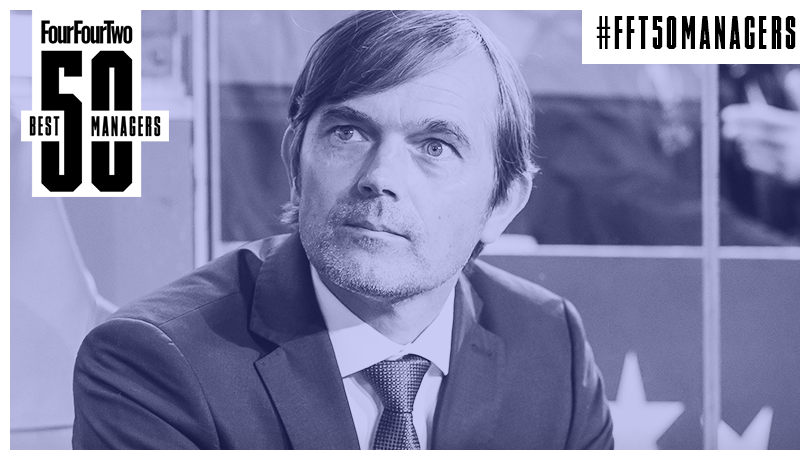
19. Phillip Cocu (Unattached)
Cocu was never short of coaching role models during his playing days, working under the likes of Louis van Gaal and Guus Hiddink during a successful career.
Few anticipated such rapid progression when the ex-Barcelona man moved to PSV, however, initially as a caretaker two years after assisting Bert van Marwijk as the Netherlands reached the 2010 World Cup Final.
In five seasons, Cocu racked up three Dutch league titles – but his summer switch to Fenerbahce was a disaster. The Dutchman won just three of his opening 15 games in Turkey and was given the sack.
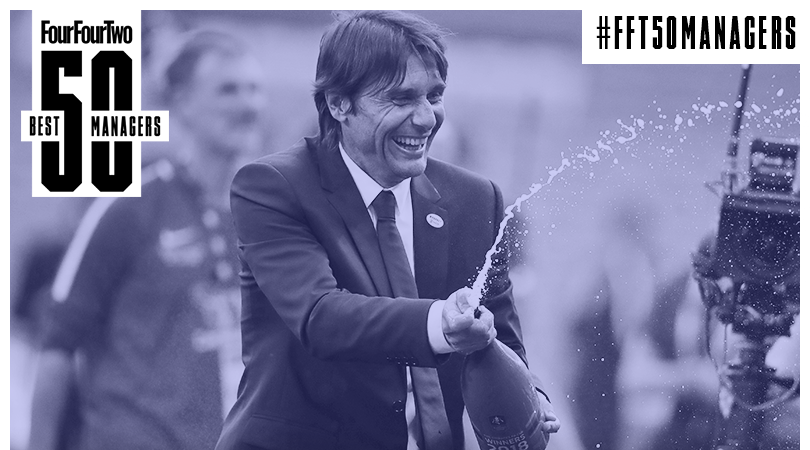
18. Antonio Conte (unattached)
Some Chelsea stars may not appreciate his man-management skills, but Conte left Stamford Bridge with the second-best win ratio in Premier League history and at number three in the best points-per-game list.
Conte also clinched the FA Cup while in charge of the Blues, but his failure to nab a Champions League spot last season made his sacking feel inevitable – even if it took a while to materialise.
Despite that, the Italian is one of the most adaptable coaches in circulation and there's a good reason that Real Madrid fancied him to replace Julen Lopetegui.
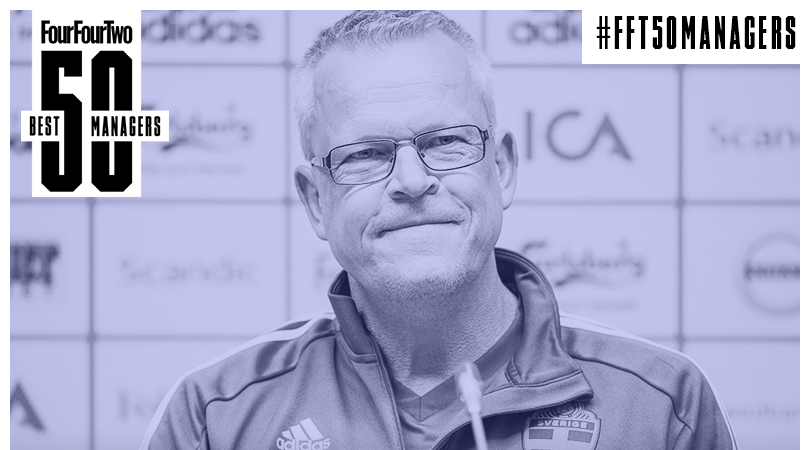
17. Janne Andersson (Sweden)
Andersson will go down in history as one of Sweden’s best managers of all time, and part of the reason for that legacy is his decision to shun one man in particular.
The manager ignored Zlatan Ibrahimovic’s hints at a return to the national set-up for the World Cup, prioritising the team unity that helped him secure a surprise Swedish title for unfancied IFK Norrkoping in 2015.
After pipping the Netherlands and Italy to reach the finals in Russia, Sweden exceeded expectations by making it all the way to the quarter-finals. Tactically astute and a good man manager who won’t stand for sock tape being left on the dressing room floor, Andersson is now a national hero.
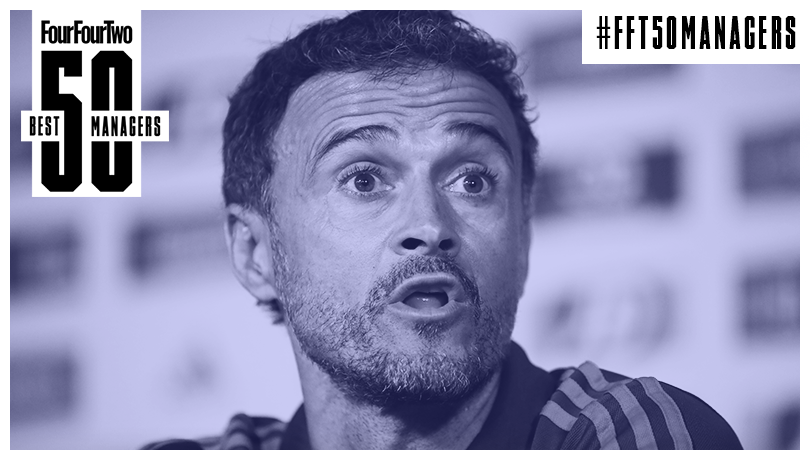
16. Luis Enrique (Spain)
Like him or not, Enrique’s nine trophies in three seasons were the rewards of a hugely successful spell at Barcelona and deserved more acclaim.
Now in charge of Spain, Enrique aims to replicate what he achieved in Catalonia; organise the defence, build a strong spine and implement a direct and attack-minded style of football.
Now he has the task of bringing respectability back to the national team after the farce of their summer in Russia. Beating Croatia 6-0 was a good start, and La Roja look a good bet to get their swagger back with the Asturian in charge.
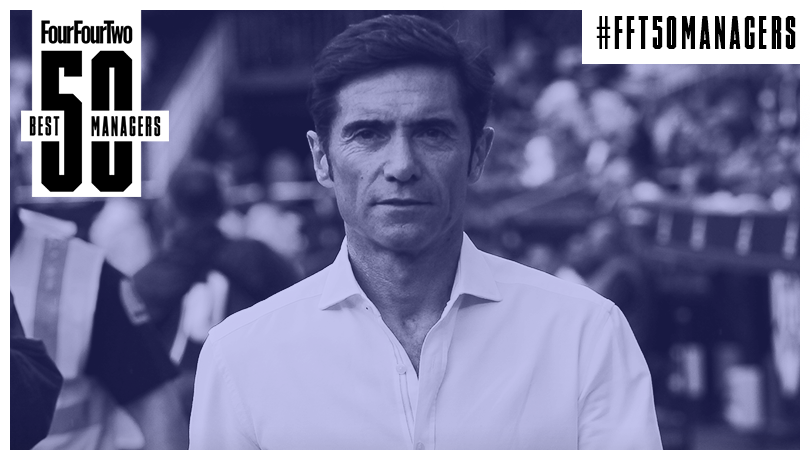
15. Marcelino (Valencia)
Managers who take a sabbatical from football can find their reputation grows while they put their feet up, but Marcelino was well worth the wait for Valencia.
He led Villarreal from the second division to the Europa League semi-finals within four seasons – leaving in the summer of 2016 – before pitching up at the Mestalla last summer.
He instilled a much-needed sense of calm on and off the pitch, made intelligent moves in the transfer market with restricted spending power and built a new team that clinched Champions League qualification at the first time of asking.
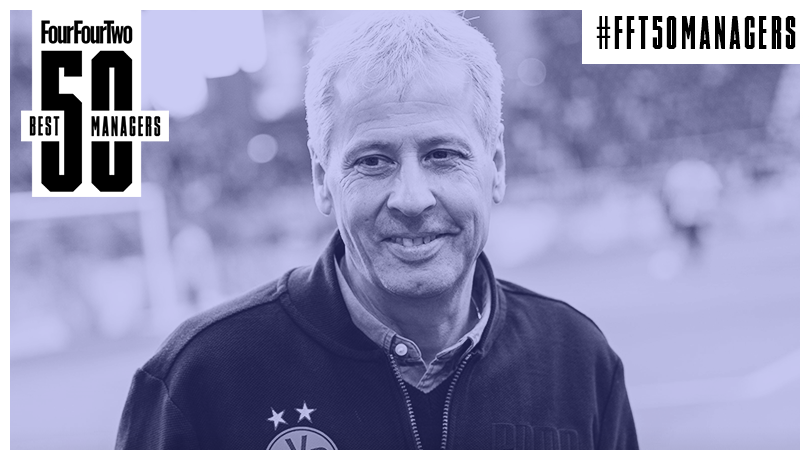
14. Lucien Favre (Borussia Dortmund)
Favre achieved much more at Nice than simply getting Mario Balotelli firing again.
That was no mean feat, but the Swiss also earned Champions League qualification for the Ligue 1 side ahead of the likes of Lyon and Marseille before bringing stability to a team that had been stripped of stars like Hatem Ben Arfa and Dalbert.
Add a Europa League last 32 place into the mix and Favre’s legacy when he left for Dortmund – who have had an immediate upturn under his guidance – was the lucrative sales of Jean Michael Seri and Alassane Plea, both of whom developed their game under the boss.
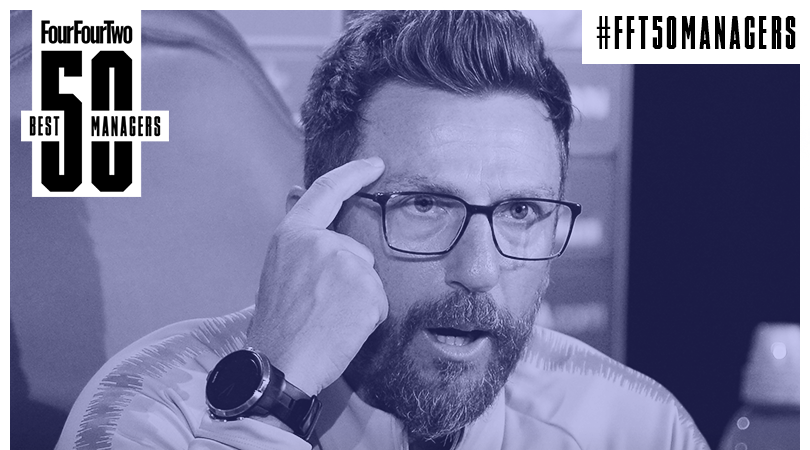
13. Eusebio Di Francesco (Roma)
Di Francesco made the transition from middling Sassuolo to the spotlight of Roma look easy, despite the capital club losing the iconic Francesco Totti, its best defender in Antonio Rudiger and the dangerous Mo Salah.
Despite those setbacks, the former Giallorrossi midfielder secured a third-place finish and pushed the club onto greater things in Europe as they reached the Champions League semi-finals in his debut campaign.
Goalkeeper Alisson subsequently departed, and second-season syndrome may have kicked in after a difficult start, but Di Francesco remains a coach on the rise.
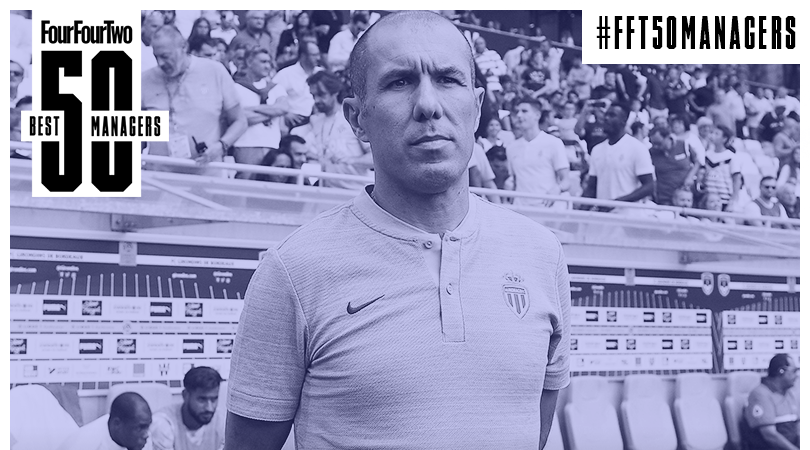
12. Leonardo Jardim (Unattached)
Jardim’s toughest campaign to date at Monaco culminated in his sacking this season, but that shouldn’t detract from his achievements before then.
The Principality club were stripped of assets like Benjamin Mendy, Tiemoue Bakayoko, Bernardo Silva and Kylian Mbappe ahead of last season, but the 44-year-old still managed to pull off the minor miracle of securing the runners-up spot in Ligue 1.
Monaco’s player turnover policy seems to have run out of steam now, but Jardim’s stock is still high thanks to the superb job he did during four-and-a-half years at the club.
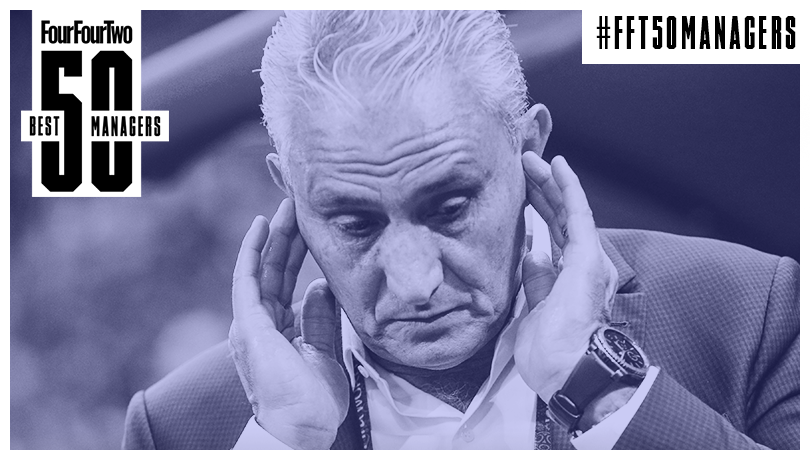
11. Tite (Brazil)
Brazil were wise to hand Tite a new deal until 2022, waving away criticism of his captaincy rotation and willingness “to go to the grave with Gabriel Jesus”.
He deserved the job long before 2016, when he replaced Dunga and duly recorded 12 victories and two draws in the Seleção’s remaining 14 World Cup qualifiers.
They arrived in Russia this summer as joint-favourites to end up as winners but were stopped short by a Roberto Martinez-led Belgium, who outwitted the Brazilians by deploying Romelu Lukaku out wide, Kevin De Bruyne as a false nine and Nacer Chadli in midfield. You can’t plan for that.
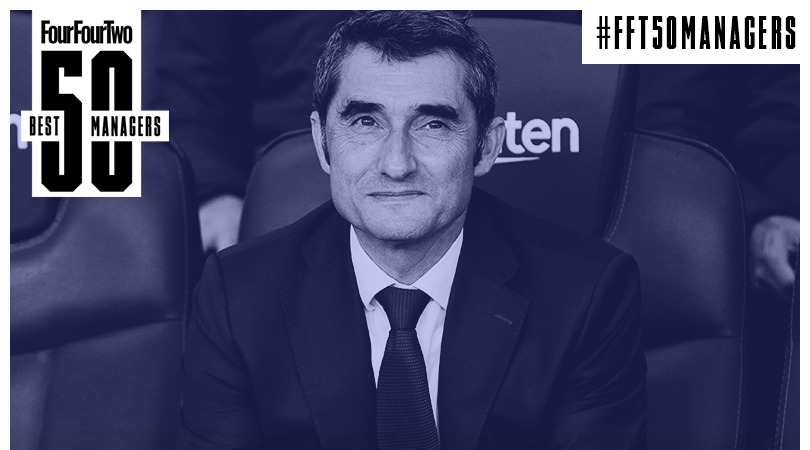
10. Ernesto Valverde (Barcelona)
It’s easy to forget that before last season, Barcelona were not being widely tipped to win La Liga. Neymar had packed his bags for PSG and accusing fingers were being pointed at the club hierarchy, not to mention the heavy political atmosphere in town.
Valverde had to contend with an injury to Neymar’s replacement Ousame Dembele too, but overcame all these difficulties to lead his side to the league title at a canter with only defeat on the penultimate day of the season preventing an unbeaten La Liga campaign.
This Barça is more pragmatic than Guardiola’s, and yet to make its mark in Europe, but the former Athletic Bilbao boss has at least ended talk of Lionel Messi’s prime years being wasted.
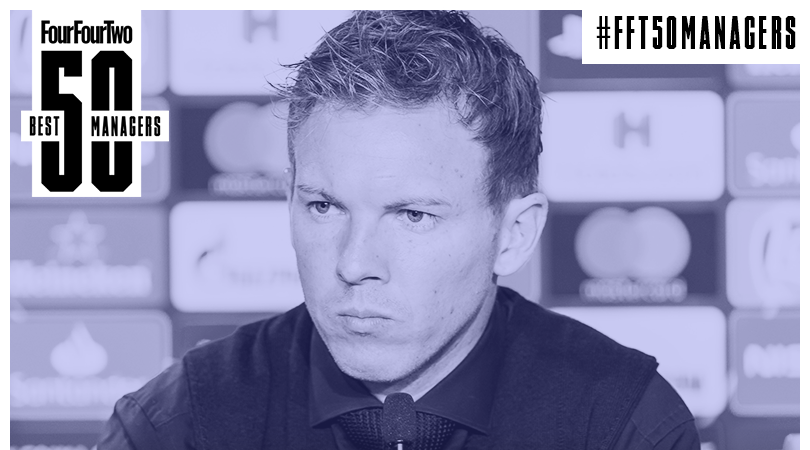
9. Julian Nagelsmann (Hoffenheim)
At the age of 31, it’s incredible what Nagelsmann has already achieved. Since becoming Hoffenheim boss in February 2016, his progression has been a dizzy blur.
First, he saved a seemingly doomed side from the drop. Then he took a squad lacking any real star quality to back-to-back top-four placings, gaining automatic Champions League qualification last season despite losing Niklas Sule, Sebastian Rudy and Sandro Wagner to Bayern Munich.
His next aim will be to break the Munich hegemony when he takes the reins at RB Leipzig next summer. Daunting? There’s no such thing with Nagelsmann.
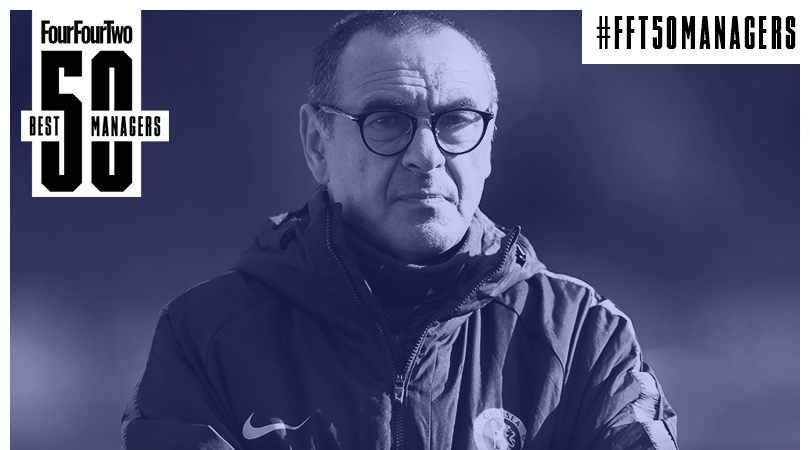
8. Maurizio Sarri (Chelsea)
Sarri may not appear to be a football revolutionary at first glance. The former banker smokes like a chimney, refuses to dress as sharply as his compatriots in the dugout and isn’t afraid to speak his mind.
However, he’s been a revelation in recent years and turned Napoli into one of the most eye-catching teams in European football, utilising an intricate system labelled ‘Sarrismo’ in Italy that drew the attention of Chelsea in the summer.
He’s taken to life in England far quicker than many expected, and although he still prefers the tracksuit, his team is showing plenty of style on the pitch.
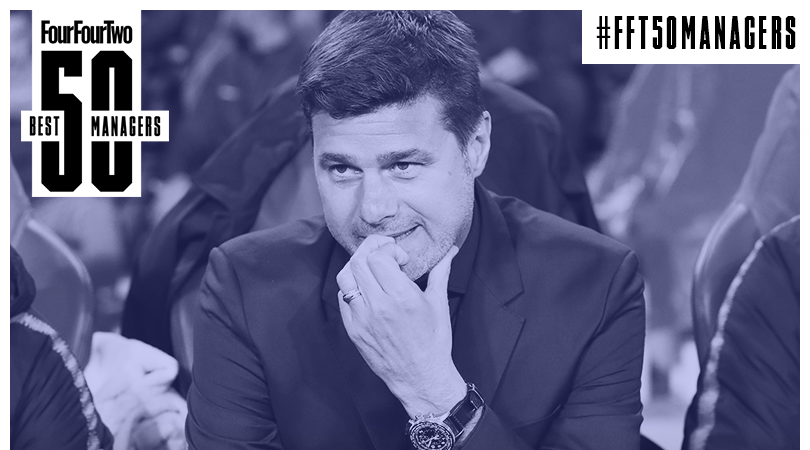
7. Mauricio Pochettino (Tottenham)
Rival fans may be bored of listening to talk of Tottenham’s financial prudence, but it bears repeating: since coming fifth in a bedding-in season, Spurs have finished in the top three for three years in a row while spending under £30m in the market.
In the same time, Manchester City have splashed out £525m on players (considering player sales), United £365m and Arsenal, Liverpool and Chelsea each more than £150m.
Pochettino is therefore doing a superb job and has improved in the big away games too, scoring his first victories at Stamford Bridge and Old Trafford this year. Progression in Europe and that elusive first trophy are next on the agenda.
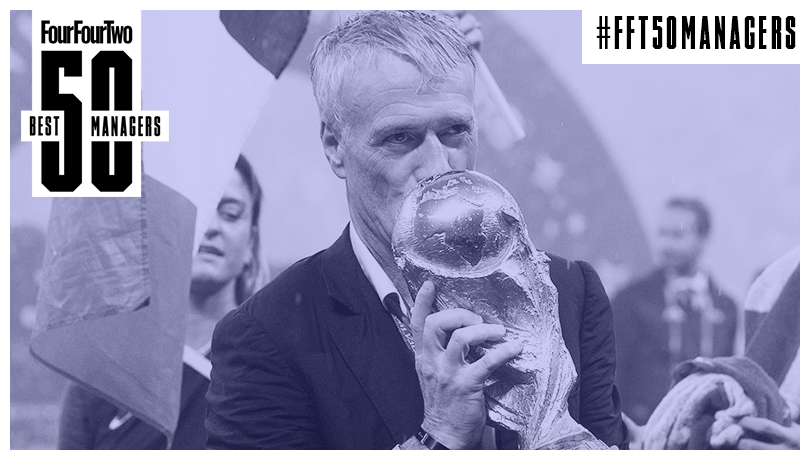
6. Didier Deschamps (France)
Deschamps had to field criticism before the World Cup started and while it was going on, for preferring certain players (Blaise Matuidi), risk-averse tactics (putting Matuidi out wide) and France’s unconvincing group stage performances.
The former midfielder was proved right in the end though as he lifted the famous trophy as manager of his country, 20 years after doing so as a player.
France’s squad was bulging with ability – after all, they left the likes of Karim Benzema, Kingsley Coman, Adrien Rabiot and Alexandre Lacazette behind – but it was Deschamps’ job to get the group to tick. Mission complete.
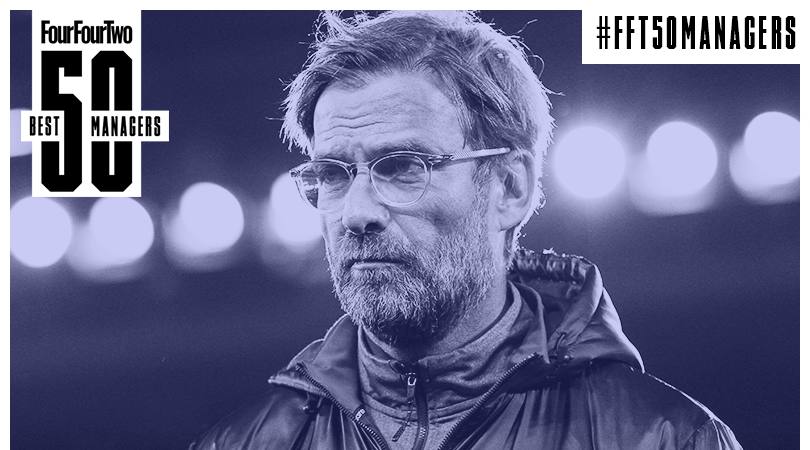
5. Jurgen Klopp (Liverpool)
Klopp has transformed Liverpool into one of England’s most formidable forces, forcing even ideologue Pep Guardiola to alter his tactics in order to cope with their fearsome front line.
The German has built a team with a clear plan; a thrilling, attack-minded group who can entertain. He has assembled the squad patiently, waiting for the right players – Virgil van Dijk, Alisson, Fabinho – rather than rushing to the market with the chequebook open to fill gaps.
Yes, he still needs to win a trophy, probably this season, but there hasn’t been this much positivity at the start of a season at Anfield for two decades.
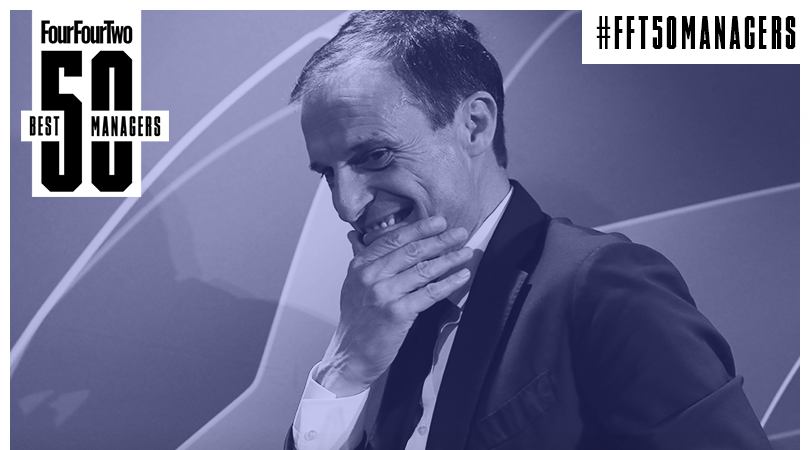
4. Max Allegri (Juventus)
Allegri’s winning machine kept rolling forward last season with another league-and-cup double, his fourth in a row in Turin despite the challenge of a superb Napoli side in Serie A.
Last season, fresh faces Douglas Costa and Federico Bernardeschi were brought into the team, while the tactician made astute changes to settle matches – notably in his side’s Champions League last-16 win over Tottenham at Wembley.
They ultimately fell short of their goal in that competition again, resulting in a stunning swoop for Cristiano Ronaldo. It’s now up to Allegri to end the club’s 22-year wait for a European title - and you wouldn’t bet against him and CR7 combining to do just that.
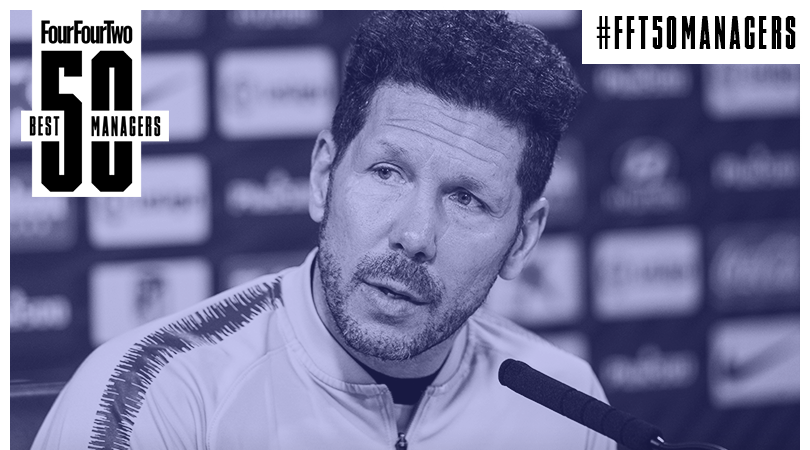
3. Diego Simeone (Atletico Madrid)
It’s not an exaggeration to say that Atleti are now considered one of Europe’s heavyweights because of their manager. The team he took over in December 2011 is unrecognisable to the current model that jostles with Barcelona and Real Madrid at the summit of La Liga.
When they dropped down to the Europa League last season they blew away the competition. Simeone is capable of improving players like very few others and cultivates an environment where his charges will play as he did: “like holding a knife between his teeth”.
How many other managers would have been able to convince Antoine Griezmann to stay at the club this summer? Another league title could come his way yet.
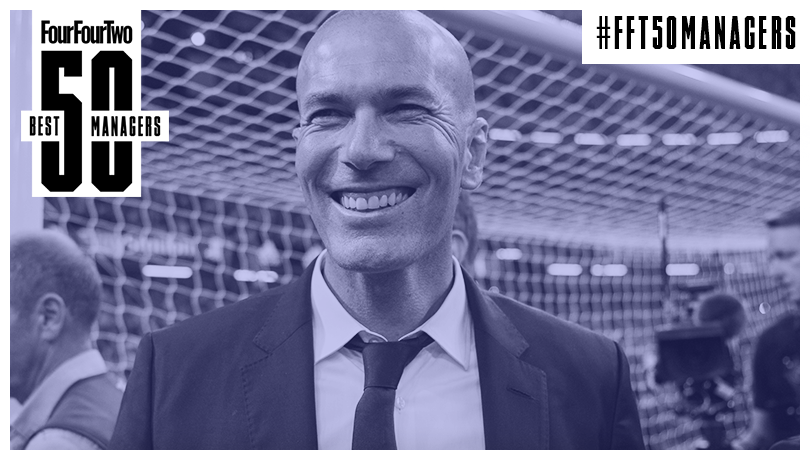
2. Zinedine Zidane (Unattached)
It’s fair to say Zizou’s two-and-a-half years at Real Madrid went quite well. The iconic Frenchman won three Champions League titles, one La Liga, two UEFA Super Cups, two Club World Cups and one Spanish Super Cup. Then he left.
He admitted ahead of the final against Liverpool that he’s “not the best coach tactically”, but his resignation came as a big shock to everyone, above all Madrid president Florentino Perez.
Recent reports in Spain suggest he walked after Perez changed his mind about selling Gareth Bale, which Zidane took as a betrayal of trust. One thing’s for sure – whoever lands him next will gain the greatest man-manager in circulation.
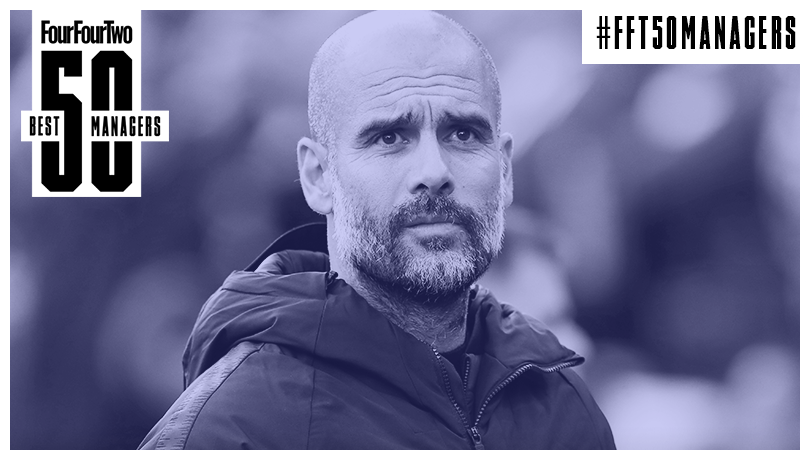
1. Pep Guardiola (Manchester City)
Manchester City’s rampage to the Premier League title last season was so impressive that even Guardiola’s detractors must hand him at least some credit. Records tumbled: most points, earliest title win, most goals, best goal difference and more.
The Citizens were exhilarating to watch at times and the former Barcelona and Bayern Munich boss is already on another level from his great inspiration Marcelo Bielsa.
Guardiola may require a Champions League winners’ medal to convince everybody, but viewers of the English game are beginning to see what fans in Bavaria once did – when the football is this good, Europe isn’t everything.
Alasdair Mackenzie is a freelance journalist based in Rome, and a FourFourTwo contributor since 2015. When not pulling on the FFT shirt, he can be found at Reuters, The Times and the i. An Italophile since growing up on a diet of Football Italia on Channel 4, he now counts himself among thousands of fans sharing a passion for Ross County and Lazio.
